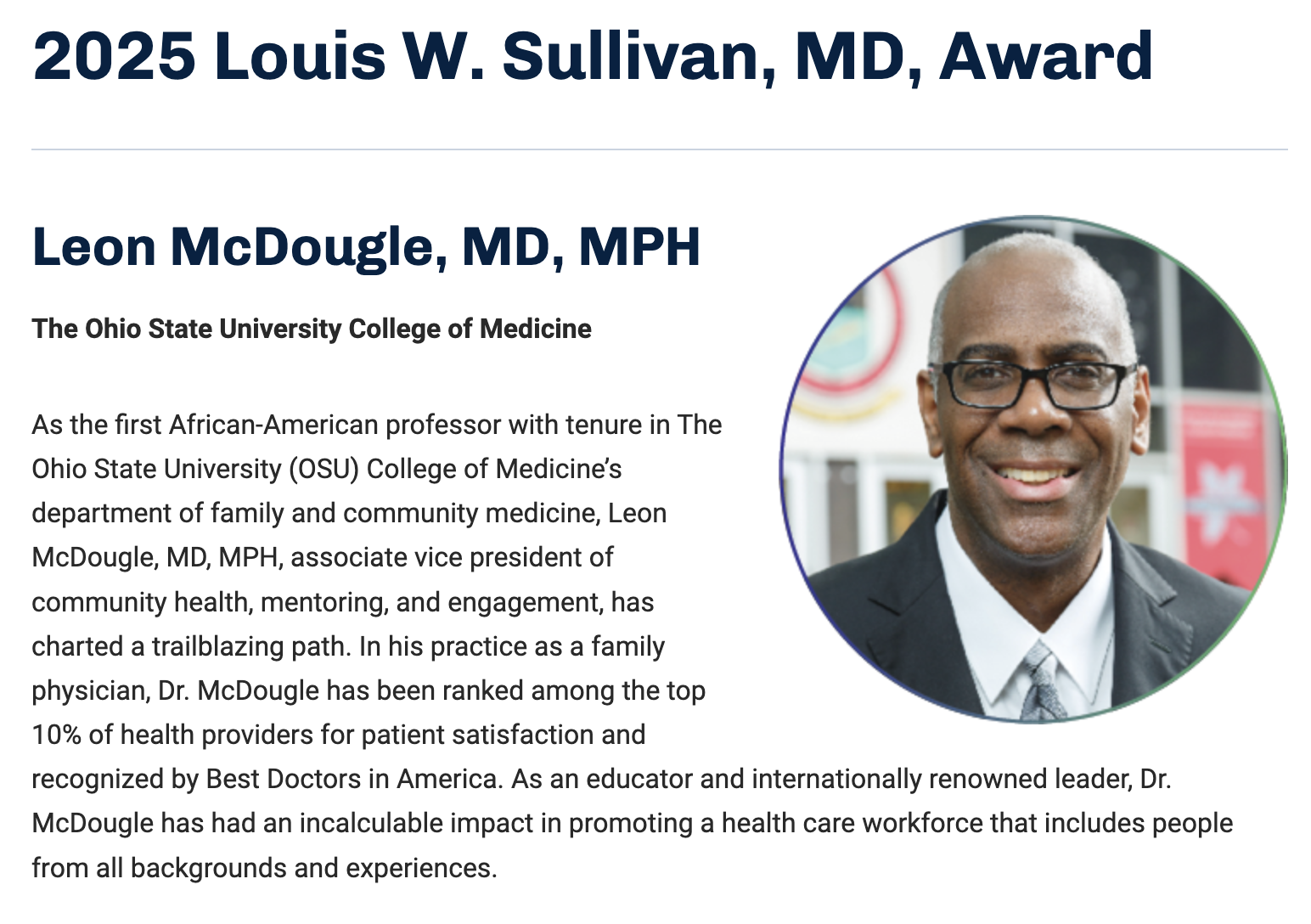W. Montague Cobb/NMA Health Institute Criteria for Lifetime Achievement AwardHistoryWilliam Montague Cobb, A.B., M.D., Ph.D., dedicated his life to turning prejudice into pluralism. Dr. Cobb spent in excess of 41 years as a teacher, anthropologist, editor, writer, historian and physician. Drawing upon his talents to promote civil rights, Dr. Cobb launched several crusades that attacked segregation and discrimination in medical education, professional training, and healthcare. To acknowledge W. Montague Cobb's dedication and contributions to African American Medicine, the Cobb Lifetime Achievement award was established by the Steering and Oversight Committee (SOC) of the Cobb Institute in 2006. The first award was presented at the 2006 NMA Convention in Dallas, Texas to W. Michael Byrd, M.D, MPH, Public Health Scientist, Harvard School of Public Health.
General Criteria for the AwardWho May Receive the Award?The Cobb Lifetime Achievement Award recognizes an individual who has demonstrated more than 20 years of consistent, long-lasting contributions to benefit African Americans and the field of Medicine. This individual may either be a physician, a social/health activist, or one who served as both during a distinguished career of Leadership. The recipient does not have to be a member of the National Medical Association (NMA). When is the Award Given?The award will be given during the NMA Annual Conference and Scientific Assembly at the opening awards ceremony and presented by the Executive Director of the Cobb Institute and the Chair of the soc. How is the Awardee Nominated?The SOC of the Cobb Institute will submit nominations during the bi-annual meetings. Executive Director of the Cobb facilitates the selection process, reviews the nominations and curriculum vitae submitted for each nominee. The SOC will make the final decision by the deadline for the NMA call for nominations. What are the Criteria for the Award?The award will be given to an individual for exceptional contributions in the field of African American medicine whose life-long career in medicine and innovations has had a significant impact on society. Awardee must have:
|






